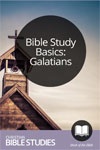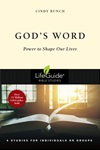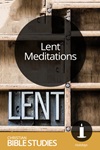A wide range of voices claims that a crisis of biblical interpretation is taking place. But contrary to many pundits, the crisis does not simply involve a decline in the Bible's authority. Even when the Bible is turned to as the authority, it's not necessarily interpreted Christianly.
Some approach it simply as an advice book. Others approach it only as ancient history, using it as a piece of evidence in answering archeological or sociological questions about the ancient world. Other scholars try to reconstruct the thought of a book or author without considering how God’s Word should impact us today.
In response to this trend, an increasing number of scholars advocate a "theological interpretation of Scripture." They encourage us to read the Bible as God's instrument of self-revelation and saving fellowship. This way of reading moves us toward knowing the triune God and being formed as Christ's disciples through Scripture.
How to Approach God’s Word
There are two common approaches to using Scripture today. Some readers start with a detailed blueprint of what the Bible says, then read individual passages of Scripture as if they were the concrete building blocks to fit into the blueprint. Thus, the task of interpreting Scripture becomes a matter of discovering where in our theological system a particular passage fits.
Others prefer a smorgasbord approach. Imagine a huge cafeteria loaded with food of many kinds for many tastes. In this approach to Scripture, the Bible becomes the answer book for our felt needs and personal perspectives.
With both the blueprint and smorgasbord approaches, we end up using Scripture for our own purposes. We are in control. The Bible may be viewed as authoritative, but it provides either confirmation of our preconceived ideas or divine advice for felt needs.
A theological reading takes the best of both of these approaches. Instead of providing a detailed blueprint, a theological reading brings a map for a journey. The map doesn’t give all the answers about a particular text. Instead, our reading sends us on a journey in which God in Scripture encounters us again and again, both with comforting signs of his presence and surprises that confound us, yet may open new vistas. Reading Scripture is not about solving puzzles but discerning a mystery. Through Scripture, we encounter no less than the mysterious triune God himself.
Early Christians also taught that Christians should—indeed, must—approach Scripture with a basic theological map in hand. By the second century, Irenaeus spoke of the "rule of faith" as a way to understand the basic Christian story with which orthodox Christians (versus Gnostics) should approach the Bible.
This "rule of faith" was not the creation of detached scholars, but an account of the gospel and Christian identity rooted in baptism: one reads Scripture as a follower of Jesus, baptized in the name of the Father, the Son, and the Holy Spirit. Thus, early baptismal creeds—statements of faith—had a Trinitarian character (e.g., the Apostles' Creed) that provided the basic content of the "rule of faith." The Trinitarian rule of faith has been a critical element of Bible reading from the early church through the Middle Ages and the Protestant Reformation.
The term rule in "rule of faith" is best thought of in terms of "measure." It doesn’t decide the meaning of specific Scripture passages in advance. Instead, it gives a sense of scope in the journey of reading Scripture, forging a path to deeper fellowship with the triune God.
Why is this necessary? The Bible is a large book, and even careful readers can interpret it in a variety of ways. But not all of these ways are Christian ways of reading Scripture. For example, one can read the Bible in a way that sees the God of Israel as a judging God, as the antithesis of the God of Jesus, who is supposedly only a gracious (not judging) God. But this is not a Christian reading of the Old or New Testaments. In the early centuries of Christianity, the rule of faith helped make sure that Christians held together the Old Testament with the New—that the God of creation and covenant is also the God revealed to us in Jesus Christ.
The new world into which God brings us via Scripture is wide and spacious, but it also has a specified character. It is a journey on the path of Jesus Christ by the power of the Spirit in anticipation of the final, culminating communion with the triune God.
The Bible Is For All Disciples
Does the theological interpretation of Scripture require specialized training? While those calling for a theological reading of Scripture (Vanhoozer, Joel Green, Stephen Fowl) encourage us to engage pre-modern commentators and modern biblical criticism, they have great confidence in the ability of ordinary congregations to approach the Bible as God's Word.
Two dynamics are often overlooked in contemporary biblical interpretations. The first is the work of the Spirit in illuminating Scripture, and the second is interpreting the Scripture "in Christ." Congregations around the world cultivate a sense of these two realities as they pray for the Spirit's illumination, worship the triune God, and apply Scripture to their community of discipleship and witness. Of course, these practices don't guarantee faithful biblical interpretation, but they are indispensable dynamics for interpreting the Bible as Scripture. The indwelling of the Spirit in the Christian community, as one located "in Christ," uniquely equips the Christian community to interpret the Bible as God's Word.
Of course, a theological reading of Scripture can have pitfalls as well. But the solution is not to surrender the Bible to scholarly experts. Rather, it is to regain a sense of the place of Scripture in God's drama of redemption, and to enter into the task of reading Scripture with openness to being reformed and reshaped by God on our path of dying to the old self and living into our identity in Christ.
Still, we should avoid another extreme: interpreting the Bible alone, without others. In our day, some assume that the individual is an omni-competent biblical interpreter. No need for commentators, no need for a community of faith. Just me, the Bible, and the Holy Spirit.
While sometimes the slogan "sola scriptura" is used to justify such an approach, it is a serious distortion of that Protestant principle. The key Reformation exegetes consulted exegetes through the ages, as well as refined their knowledge of biblical languages and other critical skills of biblical interpretation.
The theological interpretation of Scripture movement has sought to reunite what modernity has divided: discipleship and critical study of the Bible. This is in line with what Augustine wrote in On Christian Teaching: Jesus Christ, as the incarnate God-human, is the "road" to our heavenly homeland. Thus, all Scripture is interpreted in light of Jesus Christ. All scriptural interpretation must lead to our growth in love of God and neighbor.
On one hand, readers need not have scholarly competencies (such as the ability to read Hebrew or perform textual criticism) in order to interpret Scripture. On the other hand, all in the community are deeply enriched when some study the Bible at this level. They can help bring clarity to the historical context of passages and ensure the group is correctly understanding biblical genres and linguistic issues.
Reading with Expectation
We read Scripture expecting to receive a divine word—one of comfort but also of confrontation. God's Word renews us as it confronts our cultural and personal idols, provides light for our paths, and equips us to serve the world.
Thus, to read the Bible as Scripture involves delighting in, memorizing, and dwelling on it. When tempted by Satan, Jesus responds with Scripture he has memorized (Matt. 4:1-11). Colossians admonishes believers to "let the word of Christ dwell in you richly." The Gospel of John shows a Trinitarian dynamic of dwelling in Christ's word, for the Spirit sent to believers will "glorify" Christ, and "will take what is mine and declare it to you" (16:14). Delighting and dwelling in God's Word is supremely practical, relating to our finances, family, and bodies. However, we should not enter into it for worldly "success," but rather as part of our dying to the old self and participating in the Spirit's new creation in Christ.
We do not have to master Scripture and then make it relevant to our lives; through Scripture, God opens up a new place for us to dwell, a place of fellowship with Christ on a path leading to love of God and neighbor.
We never finish the journey of sanctification in this life. Likewise, we never finish our journey of meditating on Scripture, experiencing it anew in word and sacrament. We wrestle with it. In reading the Bible as Scripture, we are not the masters. We are being mastered and enlivened by the triune God.
J. Todd Billings is associate professor of Reformed theology at Western Theological Seminary in Holland, Michigan. He is the author of The Word of God for the People of God. This article is adapted from Christianity Today magazine; copyright 2011 by Christianity Today.











